The death of George Floyd and the protests that have followed have forced yet another national conversation on race in America. We’ve reached out to community members to hear their thoughts.
William Wellburn, Vice President for Inclusive Excellence, Marquette University
"I can’t breathe ... "
These are haunting words, especially in the midst of a pandemic that has taken away the breath of more than 360,000 people worldwide. How do we share our feelings of frustration at a time when we should be together but are so fractured by what Thomas M. Shapiro called toxic inequality, a dangerous conversion of racial and economic inequality?
We are tired, overwhelmed and fearful. The evidence tracking the progress of COVID-19 in the United States has pointed to hot spots among the under-served, especially in black, brown and native communities.
And remote access to education has laid bare our digital divide as students with little or no access to the internet have struggled to keep up with their work.
And then there is George Floyd. A 46-year-old Black Houston native, who reportedly moved to Minneapolis in search of "a better life."
After being arrested for allegedly passing a counterfeit twenty-dollar bill, Floyd lay on the street, his neck pinned under Minneapolis police officer Derek Chauvin’s knee for nearly nine minutes, gasping for air. "I can’t breathe ... "
Everything in Minneapolis and across the country seemed to fall apart, perhaps because Floyd’s death comes in the midst of a national pandemic of anxiety – owing as much to the allegations of racism and hate-based crimes as to the latest and deadliest coronavirus.
Right now, I am reading an email from a friend who wonders what she as a mother of a black boy can do to "shield him from the ugliness of the world." It troubles me that it seems that we as a society are begging for an end to racially charged violence – physical, mental and emotional – inflicted upon people of color.
As former President Barack Obama tweeted:
"It will fall mainly on the officials of Minnesota to ensure that the circumstances surrounding George Floyd’s death are investigated thoroughly and that justice is ultimately done. But it falls on all of us, regardless of our race or station – including the majority of men and women in law enforcement who take pride in doing their tough job the right way, every day – to work together to create a ‘new normal’ in which the legacy of bigotry and unequal treatment no longer infects our institutions or our hearts."
What is our charge as a community guided by faith and the pursuit of knowledge? First, we must recognize what higher education leader Damon Williams said in a May 29 webinar on culturally relevant decision-making during COVID-19, "Trauma experienced in our community is at an ever, ever high." He underscored that trauma transcends our culturally diverse landscape yet is elevated among the most vulnerable in our society. No matter how tough, it is crucial to discern over the brokenness of our society.
Second, we need conversation now more than ever. We should talk out what Dr. Stephanie Rivera Berruz, assistant professor of philosophy at Marquette, wrote in a March 24 Medium essay, "Human relations are not bookended by death. Death structures our sense of time, of what has and is to come, and as people of color our past is never quite past, and this pandemic will only layer the wake of our pasts that are still very present."
Although Dr. Rivera Berruz was referring specifically to the COVID-19 pandemic, these words can shape a much-needed conversation moving forward, one that cannot take a summer vacation.
Lastly, conversation should guide us in the coming academic year as we embrace what Pope John Paul II referred to as the "duty of solidarity," putting our knowledge, expertise and faith into practice.
Sometimes Twitter can take the pulse of immediate reactions and opinions. One clergywoman that I follow has been at a loss for words today, citing Jeremiah 9:21. Yet I offer these words tweeted by a singer from North Carolina as a prayer for our community:
"Love costs nothing but self-awareness and the rewards are never ending. Hatred is fear’s child and will cost us everything."
Mary Glass, Milwaukee Professionals Association
George Floyd was another African American brother-father-son-loved one murdered by a Caucasian police officer. His death continues the RACIST saga of how the lives of African Americans are not met with the rights and justice of Caucasians. I have called out to the City of Milwaukee Common Council to address immediately public policies of the Milwaukee Police Department and an immediate address of the death of Joel Acevedo. My diatribe is a daily call to MOVE THE NEEDLE for equity inclusion as a public policy researcher, activist and business owner based in Milwaukee.
Marcelia Nicholson, Chairwoman of the Milwaukee County Board of Supervisors
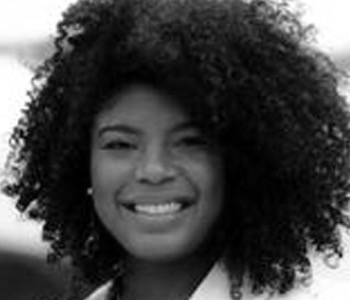
We have to break down and dismantle institutional and structural racism if we want to make progress and live in a community based on justice and equity.
The distress we are witnessing in Milwaukee and across the country in the wake of George Floyd’s murder is a response to an unjust system that has oppressed and exploited Black people for hundreds of years.
The legacy of racism in Milwaukee is seen in the extreme poverty and denial of opportunity for Black and brown people, and countless examples of police violence that our community has had to endure.
The legacy of racism is also seen in the harsh disparities in health outcomes for Black people, once again laid bare by the COVID-19 pandemic.
The only way to work toward justice is to replace systemic racism with a society based on equity, and that is what Milwaukee County government is committed to doing.
David Crowley, Milwaukee County Executive
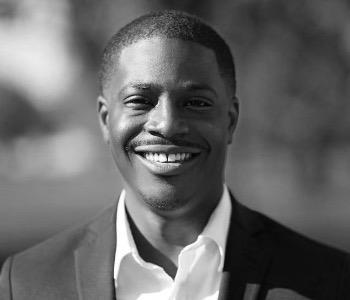
In the midst of a pandemic that has already taken such a toll on people of color, the death of George Floyd is another untenable example of how racism is the real public health crisis our community is facing.
There are no words that can rectify this injustice. Only action can come of this.
Using dignity and respect as our guideposts, Milwaukee County will continue to partner with both community and police to provide training, trauma response and mental health care. We will continue to provide racial equity training for all our employees. We will work toward reforming our contracts and policies so that we can address implicit bias and promote equitable practices at all levels of government.
We must reach out to each other, and we cannot respond to violence with violence.
Let me be clear – these injustices will not go away until we acknowledge and address the hundreds of years of racism that brought us here. It will not go away until our policies serve the interests of all our residents. And it will not go away until we lift up communities of color to the decision-making table.
The legacy of racism is also seen in the harsh disparities in health outcomes for Black people, once again laid bare by the COVID-19 pandemic.
The only way to work toward justice is to replace systemic racism with a society based on equity, and that is what Milwaukee County government is committed to doing.
Maurice Carver, executive producer/host of the cable show "Black Men Screaming"
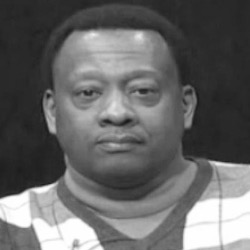
"I can’t breathe" is a cry older than the Constitution. Yes from the dungeons of Elmina Castle in Ghana to the belly of the slave ship Amistad, from Fiddler’s & David Walker’s appeal to Amadou in the vestibule and Aubrey in Satilla Shores. Atatiana, Breonna, Botham, Bell, Castile, Dontre, the ABCs of America’s oldest pandemic. U.S hypocrisy is written on the Statue of Liberty. Give us your huddled masses yearning to breathe free. Floyd cried out "I can’t breathe," but they didn’t recognize his humanity. Because the Constitution says three-fifths is all you will ever legally be. Four hundred years with your knee on our necks and the belief that Blacks had no rights that the white man was bound to respect. This dog whistle is proclaimed and encouraged by our current president. The revolution will not be televised but they will forever replay George Floyd’s last breath. I can’t get that image out of my head and if we don’t stand up now, I don’t know how we all can breathe again.
Ellen M. Gilligan, President and CEO, Greater Milwaukee Foundation
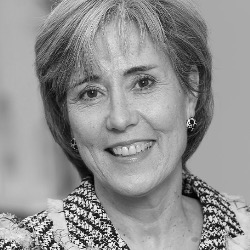
There are two public health crises in America right now. One is quite recent. One has been afflicting us for generations.
Racism is our nation’s oldest sin and most vile disease, and I am grief-stricken that we are again mourning more black lives lost and more communities capsized, all the while lamenting that nothing has changed since the last atrocity. Well, we must change, and we must start now.
Our communities of color are vibrant, unique and essential, yet we accept that in Milwaukee, an African American can expect to live 14 fewer years than a person who is white. There are no excuses, and there can be no more delays. We need to eradicate the systemic racism that withholds wellness and power from people of color and keeps our entire region from truly thriving.
We cannot continue to tolerate the apathy or intent that causes the lives of black and brown fathers, brothers, mothers, sisters, children to be disregarded, devalued and discarded. This cycle of pain endlessly affects people in our community, and the recurring injustice – whether in our back yard or 1,000 miles away – causes damage in equal amounts to the heart and health of all who live with the reality that the next time history repeats, they or their loved ones could be in harm’s way.
Individual acts of violence and prejudice inflame these wounds, but the roots are embedded in how we have shaped society in a manner that benefits people differently, and for the most part, those differences are favorable if you’re white and detrimental if you’re not. That cardinal disparity of embedded racism, and the systems that support it, are what leaders across our community – especially white leaders – must work together to dismantle.
The policies, practices and social norms that drive life experiences to diverge by race are obvious to those affected but often remain invisible to those with privilege: Housing covenants and real estate practices that have prevented nonwhite residents from living in communities of their choice and securing mortgages and homes that would have changed their family’s trajectory for prosperity. The uneven application of laws resulting in incarceration rates for black men that have reached epidemic levels. School and social structures built to be navigated by English language speakers, leading to disparate access to learning and resources for those whose fluencies do not include English. And now, COVID-19, which, through the disproportionate rates of infection and loss of life in black and Latino communities, has proven just how deep our health inequities run.
These and many other systems of bias predate us all, but many in power have tended to them through the years while others have perpetuated them through inaction.
For how long, have our friends and neighbors of color cried for justice, only for their calls to be met with silence and indifference by those who should be their allies?
The reactions to injustice we see now are the result of accumulated oppression and the denial of hope that the disparities, the persecution, the dehumanizing treatment will ever end. But end they must – if not yesterday, then today.
First, we must be willing to honestly see the suffering in our neighborhoods, our communities and our country. We must exit the comfort of our individual existence and hold tight to the humanity that allows us to recognize the innate worth all people possess. We must celebrate diversity, including the rich contributions that communities of color have made and continue to make to our collective way of life.
Most importantly, we must hold ourselves and each other accountable for permanently changing both our narrative and reality.
The Greater Milwaukee Foundation made a generational commitment to racial equity and inclusion in 2016, and the work we have accomplished side-by-side with community means something, but it is not enough. Our pace must be faster, our resolve must be sharper, our urgency must be greater as we seek justice. A much greater burden must be carried by white leaders and white institutions, and I pledge to do all I can to advance a new era that ends racist structures.
As your community foundation, we love Milwaukee and have spent the last 105 years dedicated to its brightest future. I know you love Milwaukee too. Our community has come together before to develop bold solutions to big problems. We have the knowledge. We have the ability. Together, we have everything we need to transform Milwaukee.
I want you to hear and know that you matter. Your family matters. Your community matters. Now is the time to rid ourselves of the virus of racism so everyone in our community can experience the joy, health, safety and fulfillment in life that they deserve. Now is the time for everyone to thrive.
Venice Williams, Director of Alice's Garden and a lay minister, teacher, healer and facilitator
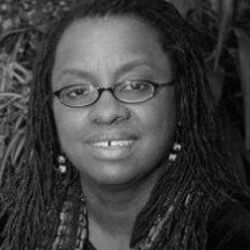
What the United States of Arrogance does not understand is: None of this has to make sense to you. Your actions have never made sense to us. Indeed, your senseless actions throughout the generations, your senseless actions this week, all of your lack of common sense, basic decency, disregard for my ancestral humanity, has led to this moment.
I am angry.
My anger will birth an agenda.
It always does.
The fire burns inside of me.
I burn a fire of sage and lavender and mug wort and eucalyptus around me.
I burn to protect me and mine from you.
I burn and pray for your healing, not mine.
I am not the one with the deep wounds in need of healing.
You are.
#americagetyourkneeoffmyneck
Nakisha Adams, CEO, Skribble
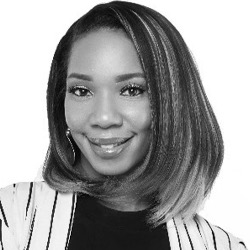
The best way for me to articulate what the death of George Floyd means to me is to share a conversation I had with my 12-year-old son. I asked him how he felt about what was going on, and his response was as follows: "I’m just numb to it. It’s kind of how you watch a scary movie for the first time, and it really scares you and you find yourself thinking about different scenes. Then a part two and a part three and a part four come out and then the movie becomes less scary because you already know the main character, the plot and have an idea of how it will end." We all know or have a George Floyd in our lives and watching his murder haunts all of us.
The implications it has for Milwaukee are hopefully it will force the police department to make changes not only in their policies of hiring, but their policies involving conduct in officer-related incidents with minorities. I also hope that individuals will pay more attention to who their elected officials are and what those individuals are doing or not doing, so when there are elections, we are voting to put the right individuals in those offices.
Marquayla Ellison, President of Social X MKE and owner of Ellastic Designs

George Floyd’s death is upsetting and unsettling, it is a reminder that we (the black community) are not safe, loved and protected like others. It is a reminder to be cautious and that no matter how many strides we make, one simple dispute can take our lives away. We know this situation all too well with the deaths of Sylville Smith, Dontre Hamilton and many others. We are hurting and Milwaukee needs to get ahead of this. The reaction to George’s death was "a shot heard around the world." The audacity of that officer to take someone’s life in such a public way with no remorse WILL encourage more situations to come. Yes, we need white allies to stand up and be loud with us, but what we really need is new processes and procedures for law enforcement that are firm and cannot be turned a blind eye to. The work that I do is hard. I am trying to make Milwaukee a great place for young professionals of color. I can tell a transplant where to go for a good time, but how can I keep them safe?
Malik Pitchford, a Milwaukee native and student at DePaul University
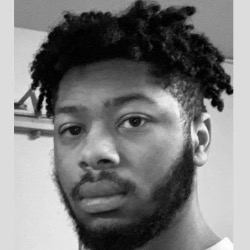
Firstly, rest in power: George Floyd, Breonna Taylor, Tony McDade, Ahmaud Arbery and the thousands of other members of our Black communities slain by a system meant to serve and protect them.
To see a city of familiar faces, perhaps one’s own city, being called thugs and criminals for protesting deaths at the hands of police brutality is enraging. It’s disheartening. It’s reprehensible. It’s as American as apple pie.
Policing in urban communities represents a historical relationship between the law enforcers and those who are subject to the enforcement. The only things distinguishing one from the other is a badge, uniform, a couple more months of training and what seems like impunity from the laws being enforced.
We are told by our enemies and supposed allies that while being victims of abuse at the hands of law enforcement, we must make sure our tones of anger and disgust toward this enforcement must maintain civility and respect for those who have no civility and respect for us.
We are told by our enemies and allies that we must reflect on the dreams of Martin Luther King Jr. and love our enemies. Who knows how far these visions of nonviolence and mutual respect for all in America could have gone, if it wasn’t for the assassination of a man preaching those various visions.
See, when our enemies and allies talk of a whitewashed version of King’s legacy and bring up the importance of turning the other cheek, walking hand and hand with each other, and respecting the oppressors, they fail to mention that he was killed for these beliefs.
When an athlete took a knee during a song in order to bring awareness to police brutality that athlete was hailed as anti-American, a "son of a b*tch" and blackballed from his career. We are told violence is not the answer but being nonviolent is also not the answer either, as it can come off as disrespectful, antagonizing.
This brings me to believe that the issue many of our allies have is the same issue held by our enemies. The way we protest and react does not matter because both groups are in support of the very things we are protesting against.
To get mad at a protest for "becoming violent" while ignoring the violence imposed on protestors first and foremost is remarkable. For police to use violence in order to disperse to a peaceful group of protestors – who are protesting police violence – is comically ironic and downright depressing.
Within the past four days, the use of teargas, militarized policing, the actual military, rubber bullets, real bullets, horses, cars and fists have been normalized, supported, and used against those protesting violence at the hands of those who are sworn to serve and protect us.
Those of us on the receiving end of surveillance and 24/7 policing are never truly afforded the opportunity to decide how the communities we live in are policed and furthermore, how we react to injustices due to our over-policing.
Rather, people in Milwaukee, like Chicago, Minneapolis, Oakland, Louisville, Philadelphia and many other cities are told that we are anarchic for destroying our "own community," setting cop cars ablaze, expropriating items from businesses and shutting down streets with demonstrations. In all actuality, our "communities" are largely not owned by the people that live within them. We are told we are destroying our own community but not much thought goes toward how gentrification displaces poor people who have been living in Milwaukee communities for generations.
There is nothing at stake for those subject to a pandemic where we take the brunt of the health inequity force, a lack of fulfilling work with money to show for it, and the despair of knowing you can be a model minority and still face prejudice–but there is everything to gain from overthrowing a system of oppression that has bounded your community for years.
To be in support of the protests and rebellions galvanizing urban populations across the country is to realize the agency and consciousness communities have, regardless of race. To be in support is acknowledging the real consequences of the oppressive systems that have demoralized and killed so many of our own community’s family and friends. To be in support of the protests and rebellions, one must not concern themselves with the blaming of victims subject to oppressive social relationships and how we respond to being oppressed.
Milwaukee is mourning because we have had our own George Floyd, our own Breonna Taylor, our own Tony McDade, our own Ahmaud Arbery and we will continue to add to this list until something is seriously done about the methods of policing in our communities and the systems of oppression upheld by the United States as it stands. Make no mistake, to conflate the uprisings across America solely because of the death of George Floyd would be to willfully ignore what our communities have been protesting against in general since the introduction of Africans to America and the genocide of the Native Americans.
Nina Wilson, teacher
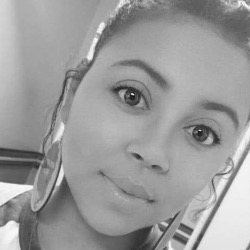
The death of George Floyd means an attack on blacks nationwide. Blacks in America are not protected by police officers, we are the faces that they fear. We are guilty at first sight. Moreover, George Floyd’s death proves that there is no true check and balance when it comes to police officers. As he begged to breathe, people stood by and watched or videotaped his death. They feared retaliation from those officers more than they cared about yet another black man’s life. George Floyd’s name is a part of a long list of blacks that have been murdered by police officers for generations, and nothing has been done to change or fix that. We are not dying; we are being targeted and murdered. We feel the hatred that this nation has toward us. We’ve known for generations, so much so that "the talk" with our parents is about how to be docile and cooperative in the face of officers even when we did nothing wrong. His death was the tip of the iceberg, and the people are ready for the systems of oppression ship to sink. We are tired and have had enough. Because in America, living while black is the crime.
Vaun Mayes, community activist
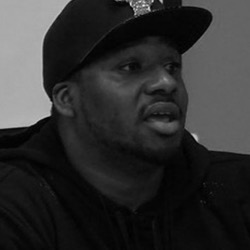
The death of George Floyd represents what should be the end of an era of police violence in America.
At this point, we’ve all seen the death. Both sides of the coin — those who call for police accountability and those who support law enforcement who typically never admit police wrongdoing – are saying, "This was wrong."
When we have governors and mayors, as well as police unions and chiefs all saying, "This is wrong," then we should come together and agree to pass legislation and change policy to end police violence for the rest of time. We have the opportunity.
I want our city to know that here in Milwaukee, we face those same ills of excessive police brutality. We’ve faced these issues before. We have our own cases that are unresolved and it’s just unacceptable.
These documents (part one, part two) are what we called for at my rally. It’s a call for elected officials — city, county, state — to all come together to create and implement new legislation and policies that will help citizens and officers to protect themselves — but not officers more than citizens.
Today is a new day, and we need to end police violence forever.
Jarrett English, community activist and organizer
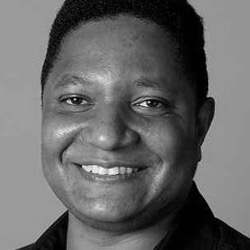
The murder of George Floyd, a human being, is first and foremost a tragic loss for his family and loved ones. On a larger scale, it is another lynching of a black human being in a long string of lynchings that are as much a part of America as apple pie and football. It doesn’t matter if you’re in a so-called progressive state like Minnesota, New York or California, or whether you live in a former bastion of the Confederacy like Georgia or Mississippi, this nation’s legacy is racism and white supremacy.
What will destroy this nation, if we let it, isn’t fed up young people protesting in the streets or disenfranchised people looting a Target. What will destroy it is the complete failure of those in leadership on the local, state and federal levels — government, private industry, and otherwise — to undo white supremacy as best represented and enforced by the police-military-industrial complex because they, themselves, greatly benefit from it. What this means for Milwaukee is that it’s time to stop playing games. We’ve had multiple George Floyds, seen and unseen. We’ve got prosecutors and politicians who put on a show, but in the end, continue to enable police officers who brutalize and murder their constituents. The community not only suffers the trauma and brutality of the state violence, but literally ends up paying for it through the municipal bonds that the city has to issue to pay for all of the police settlements. All of this compounded on top of the generational poverty and disenfranchisement that inflames interpersonal violence.
Milwaukee needs to put its resources into community building and public health.
That $300-plus million in the police budget didn’t protect one person from COVID-19, joblessness or eviction. If the leaders in place right now won’t force things to change with the power vested in them, we’re going to put in leaders who will. Because it’s past time.
Neighborhood News readers need to get up and get out (with your mask and gloves on) and go help marginalized and state-brutalized communities the way they want to be helped, not how you want to help them. The people closest to the problem are experts in creating the solution.
Make sure they have the tools to do so.
Elmer Moore Jr., community leader
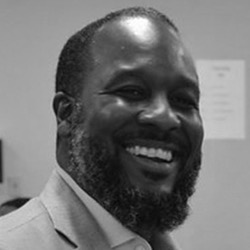
Every instance of violence against my community is heartbreaking especially when it’s pretending to be in the name of justice or protection. People who look like me, who live in communities like mine, who have families like mine have been targeted and taken from us for too long. Each and every one of these attacks contributes to our community’s trauma. We can’t continue to absorb the assaults on our safety and self-worth. George, Joel, Ahmaud and so many of the men and women whose lives were stolen are just like everyone of us. Cities across the country are on the brink, Milwaukee included. I’m worried because this causes serious and permanent damage to our collective psyche. So many are just trying to make ends meet, and they have to worry about surviving racism, too. It’s too much and it’s wrong.
It’s time to fight for our lives but it’s also time to make sure we’re surviving. The emotional, mental, and physical anguish is real. We have to deal with that if we’re going to fight to make things better. I’m so grateful the places and spaces that offer safety and rest. I’m personally blessed to have a network of men who let me vent, release and cry if I need to. As we ready ourselves for this long fight, I hope others can find or create moments to care for one another.

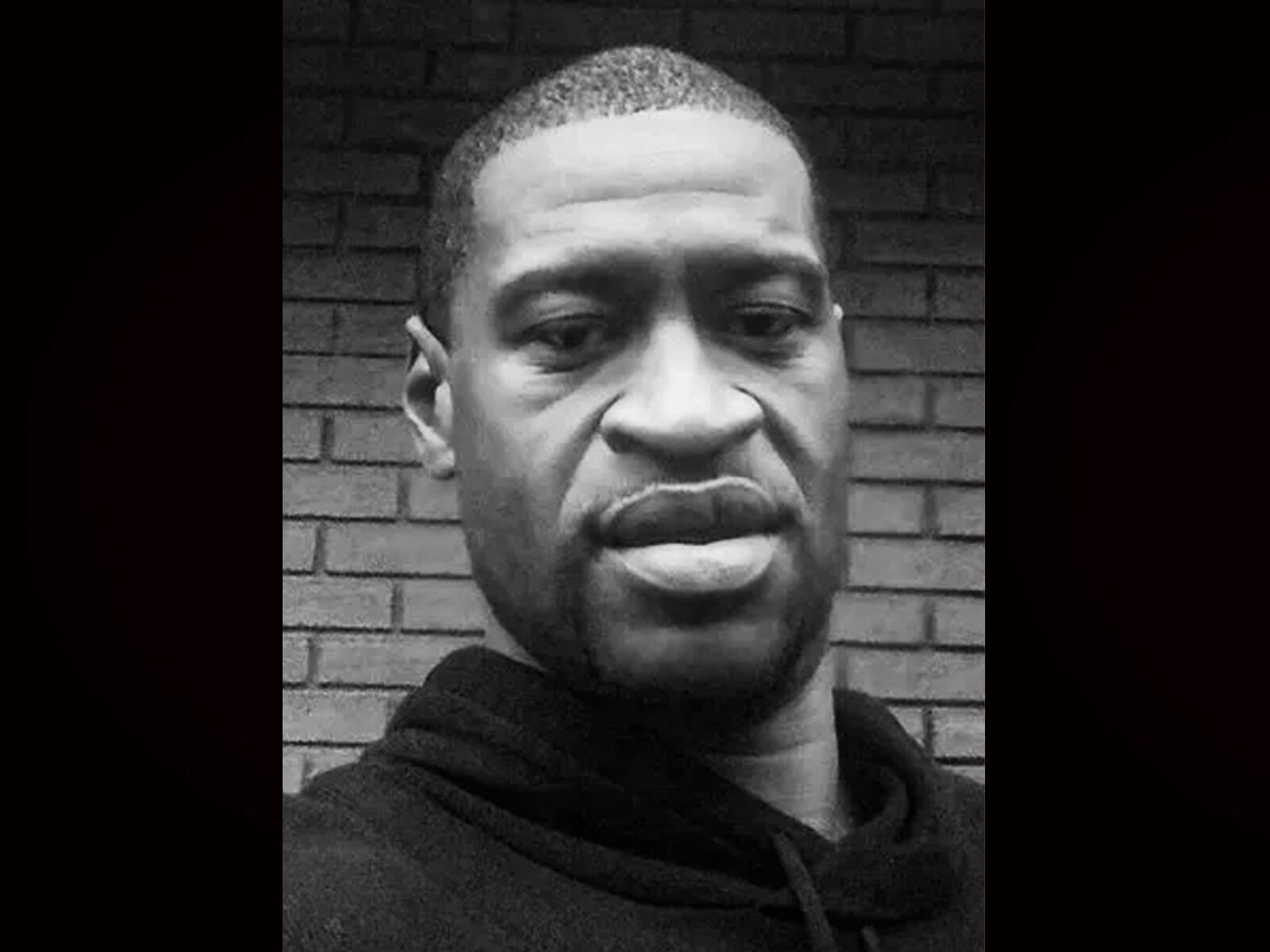

.jpeg)



